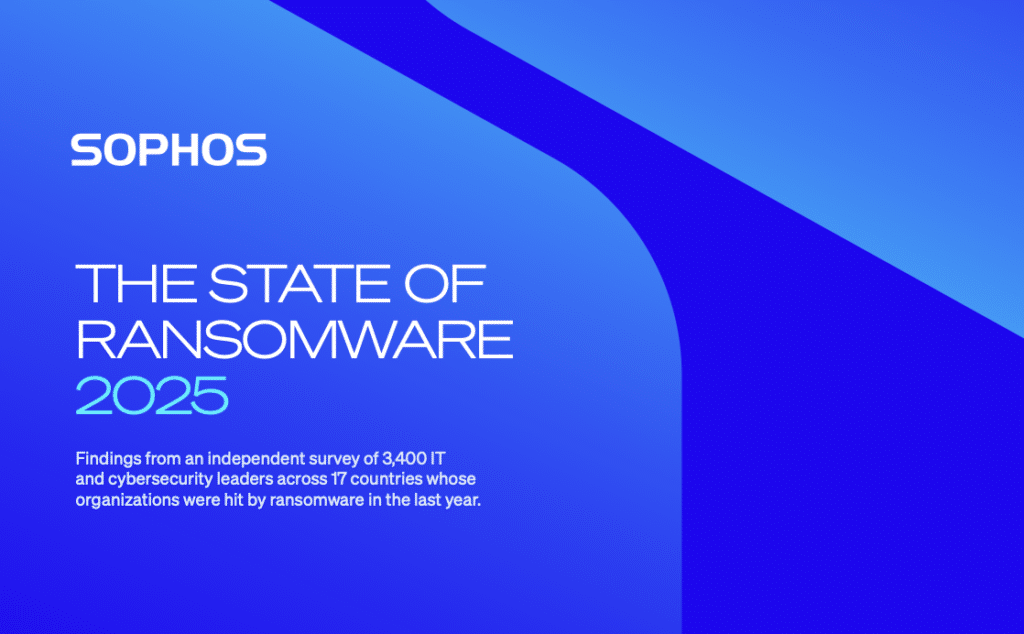UK SMEs must fortify their cybersecurity against geopolitical risks, says Espria

A recent Sky News investigation highlighted an uptick in cyberattacks tied to the Iran conflict that are targeting businesses across multiple sectors. Speaking at the NATO Summit, Prime Minister Sir Keir Starmer urged UK businesses, regardless of size or sector, to prioritise cybersecurity and ‘take immediate steps to review and strengthen their defences.’
While the warning is timely in tone, businesses are already becoming targets of politically motivated cyberattacks, emphasising the need for heightened vigilance.
“As tensions spread globally, threat actors will continue to exploit digital vulnerabilities, and neutral businesses may be caught in the crossfire. These organisations offer low-risk targets for these cyber criminals to make an impact,” said Clinton Groome, CEO, at Espria.
“This message from the UK government warns businesses of the cyber political risk now prevalent, but the lateness in the message raises concerns over lack of proactive action and teaches an important lesson; businesses should not wait for official alerts to act. Instead, IT leaders should take a proactive stance by investing in integrated defences, educated users, and a clear strategy to prepare.”
A common weakness among businesses is human error yet cyber awareness continues to be under-emphasised. Before implementing IT upgrades and new tools, Groome urges organisations to fortify their front line of defence: the human firewall.
“Businesses must recognise that in these politically driven times, it’s not just systems under pressure – it’s people. Digitalisation tools go hand in hand with adequate cyber resilience as threat actors exploit distraction, fear, and information overload to push social engineering attacks. A recent BT study revealed that 39% of SMEs, equivalent to a staggering 2 million businesses, have not arranged cyber security training for their teams, emphasising the underprepared nature of businesses who are left dangerously exposed.
“As discussed in our recent human risk webinar, fostering cyber awareness company-wide is essential to business security. This involves resilience drills such as incident response exercises, real-world scenarios, reporting mechanisms, and most importantly, consistent reinforcement to retain the information taught. Continuous education and behaviour-focused defences can form a workforce that is both informed and aware enough to report suspicious activity.
“Combined with regular cyber measures like multi-factor authentication, regular patching, and securing IoT, businesses can create a layered defence that limits the likelihood of human error, while containing any fallout. It’s also worth noting that the end of support for Window 10 in October also presents an opportunity for the criminal fraternity as it will no longer be patched or supported and an early move to Windows 11 is recommended.
Groome continued, “Observability is also a team sport and to relieve cyber pressure on employees, businesses must prioritise integrated visibility. Integration across telemetry sources can give IT teams the ability to connect the vulnerability points across their environment from identity systems, endpoints, emails, and cloud environments.
“Previously missed amongst the busy business network, subtle cyber indicators such as unusual logins, repeated MFA requests, or lateral movement can be identified and handled before systems are compromised. This bigger picture can give organisations the context needed to respond with precision and in short, turn siloed data into a focused threat picture that provides actionable insight.”
“Deploying and managing these tools can be complex and resource-intensive, and some businesses can find this task costly. However, external expertise or partnerships can scale telemetry integration and provide cyber training that supports a proactive defence in the face of rising geopolitical threat activity.”
Groome concluded, “The escalation of global tensions has brought focus to cybersecurity and preventing common attacks. With the right telemetry integration, training and expert support, businesses can create a layered defence that empowers employees with threat knowledge and have oversight on all business functions.”
You may be interested in
Is Your MSP Really Helping You Grow — Or Just Keeping the Lights On?
There’s a moment in every business where the question quietly surfaces: “Are we getting what we really need from our IT provider?” It’s not always easy to answer. On the surface, things seem fine. Tickets are resolved. Reports arrive. There’s someone to call when things go wrong. It’s familiar. It’s comfortable. And that comfort can be deceiving. Because beneath the surface, many organisations are stuck in a service relationship that feels safe — but is actually stagnant. And here’s the truth: comfort isn’t the same as progress. For many, the idea of changing MSPs or challenging the…
The 2025 State of Ransomware: Key Insights on Attacks, Costs, and Recovery
Ransomware continues to evolve — and so must our defenses. The State of Ransomware 2025 report from Sophos presents one of the most comprehensive views yet into how organisations around the world are being impacted by ransomware attacks. Based on an independent survey of 3,400 IT and cybersecurity leaders across 17 countries, the report explores how attacks are evolving, the operational weaknesses adversaries exploit, and the human and financial tolls that follow. Whether you’re building a cybersecurity strategy or assessing risk, this year’s findings offer crucial, real-world insights to guide your response. Key Findings from…
Outgrowing your MSP; businesses need a provider that scales with their growth
To stay competitive, business leaders must align with MSPs that deliver strategic value, drive innovation, and support to scale. Now firmly into 2025, it’s becoming clear what the year has in store for the IT landscape. For SMBs, the message is clear: business growth must be matched with smarter, more scalable managed services. The demand for cyber-resilient, cloud-first and AI-integrated solutions is no longer a forecast – it’s a reality already shaping business priorities. According to leading global technology market analyst firm Canalys’ MSP Trends 2025 report, the MSP model is transforming under growing pressure…
End of windows 10 support signal urgent action needed from UK organisations as cyberattacks continue to rise
Recent breaches at major UK retailers, combined with the approaching end of life of Windows 10, highlights a critical moment for IT resilience planning The recent wave of cyberattacks targeting major UK retailers has highlighted the growing security risks associated with organisations running outdated systems and applications and maintaining weak identity verification protocols. These incidents—particularly those involving Marks & Spencer and the Co-Op—have starkly exposed how vulnerable legacy infrastructure and insufficient access controls can be. In both cases, attackers successfully posed as legitimate employees and manipulated IT help desks into resetting internal passwords, ultimately gaining…
Why Businesses Should Invest in ESG: Lessons learned by Espria
In today’s competitive landscape, Environmental, Social and Governance (ESG) performance is no longer just a “nice to have”—it is a critical business imperative. Companies that prioritise ESG are better positioned for long-term success, risk mitigation, and reputation enhancement. Today’s world demands more from companies than just financial performance. Customers want transparency. Employees want purpose. Investors want resilience. ESG helps businesses manage risk, seize new opportunities and build trust with the people who matter most. It is how you can stay competitive, stay responsible and stay relevant in a fast-changing world. A powerful case study of…
The Importance of Compliance and Security: Complementary Forces in Today’s Business World
In today’s rapidly evolving business landscape, compliance and security have become paramount. These two elements, often perceived as hurdles, are in fact complementary forces that drive business success and sustainability. Understanding their importance and how they work together can transform them from perceived blockers into enablers of growth and innovation. The Role of Compliance Compliance refers to adhering to laws, regulations, standards and ethical practices relevant to an industry. It ensures that a company operates within the legal framework and maintains its reputation. Compliance is not just about avoiding fines and legal issues; it is…





